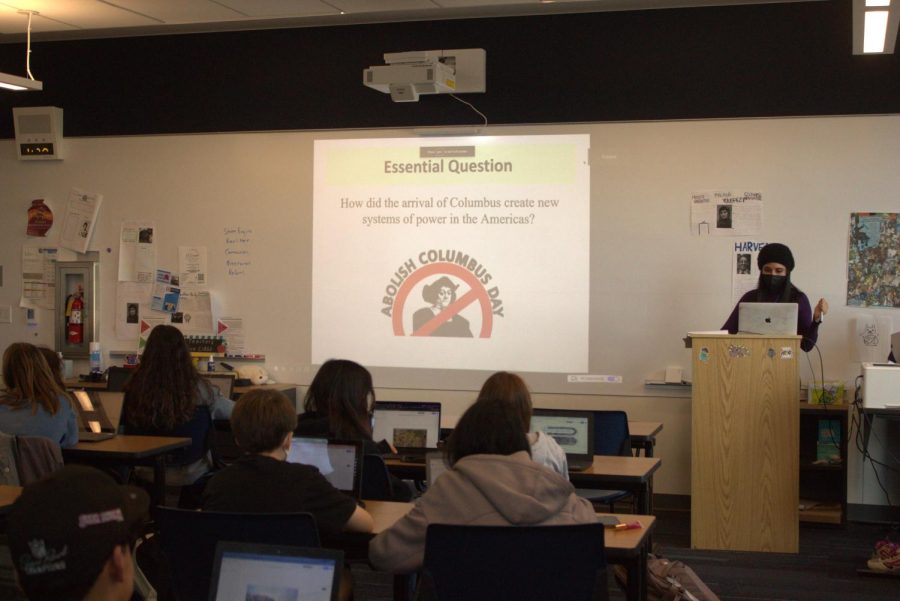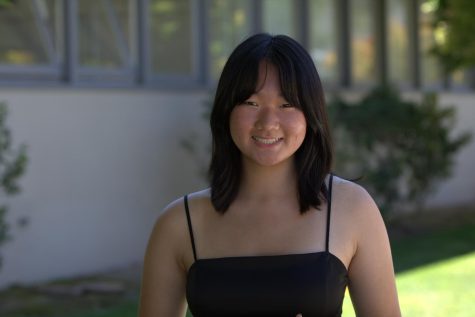New Ethnic Studies class is well-liked, despite some deficiencies
Despite issues with student engagement and curriculum, the new Ethnic Studies pilot course is popular among students, who say it covers controversial and current topics well.
This school year, freshmen had the opportunity to take Ethnic Studies — a pilot course that aims to discuss topics like identity, power and social justice from a modern perspective. For the first Ethnic Studies class in Mountain View–Los Altos School District history, the course has inspired both appreciation of the class’s treatment of historical and current events, and criticism over student engagement and blind spots in its curriculum.
Ethnic Studies, much like any history class, is largely built around student-led discussions, which are meant to include relevant topics like economic and social inequity, housing discrimination and disparities in the justice system.
“We didn’t want to just make the course solely about how people have been oppressed,” Ethnic Studies teacher Roger Kim said. “We wanted to review uplifting stories about how groups have overcome that oppression and to celebrate diversity.”
“The whole point of the course is to get a conversation started about injustice and inequality,” freshman Matilda Foulds said. “The teacher creates a very safe space. All the kids in my class are very kind and open minded.”
The course aims to go beyond the setting of a traditional history class like World Studies, which focuses mainly on historical events. In Ethnic Studies, students also learn about how history has affected current events — from local to global phenomena. Everything from societal, historical discrimination to local instances of racism and cultural appropriation are discussed in class, and many students have found the class’s discussions of sensitive topics to be helpful and informative.
“We get to learn about what’s going on around campus, which is interesting because it applies directly to us,” Matilda said.
Ethnic Studies was also developed with the intention of educating students on modern terminology revolving around marginalized groups, like ethnic minorities or the LGBTQ+ community
“We learned a lot about different genders,” freshman Kareena Kirpalani said. “I didn’t know that non-binary could mean all genders — I just thought it meant no gender. Ethnic Studies is really respectful of everything we learn about.”
“We find certain terms for things that we’ve experienced that we didn’t know existed. I think seeing that in my class makes it much easier to depict my past experiences and also helps me understand how I can navigate through situations in the future,” freshman Pierce Kershaw said.
In addition to furthering modern education on concepts like identity, Ethnic Studies attempts to correct outdated misconceptions that are common in traditional history classes.
“I’d always been taught that Christopher Columbus came and explored this ‘new world’ — they’d always made it seem like such a happy story,” Kareena said. “It was interesting to learn what actually happened and how people have changed the story.”
However, there has been some criticism of the pilot course’s curriculum, often from communities which the course tries to represent.
“I thought the education on queer history and representation was okay,” Pierce said. “But to be honest, since I’m non-binary, I saw very little explanation as to what being non-binary was.”
Another issue the class has experienced is student engagement, which is a struggle in a course which aims to build awareness and empathy.
“I think it’s very obvious when the students aren’t engaging and don’t think that the material isn’t really relevant. It is, but it’s just not relevant to their own identity,” Pierce said.
During the unit on gender identity, Pierce faced harassment from the students in their class — according to them, students in the class told them that “there are only two genders” and to “cry about it.”
However, despite incidents like these, Ethnic Studies teachers still aim to create spaces where students can learn to empathize with those around them.
“We share a lot of these stories with each other, and I share a lot of my personal stories as well,” Kim said. “Hopefully that will help not only students to understand each other better but to become a better community and to build empathy for each other and what we all go through.”
Despite these issues, though, many students find Ethnic Studies to be an enjoyable and informative course that all students, regardless of background, can learn from.
“Everyone, no matter what friend group you have, will end up being in their own enclosed world, so I would honestly recommend this class to every single young person,” Pierce said.
“I recommend the class to everyone and think it should be a graduating requirement,” Matilda said. “Some kids may find it boring, depending on your background, but it’s a really important and essential class.”




